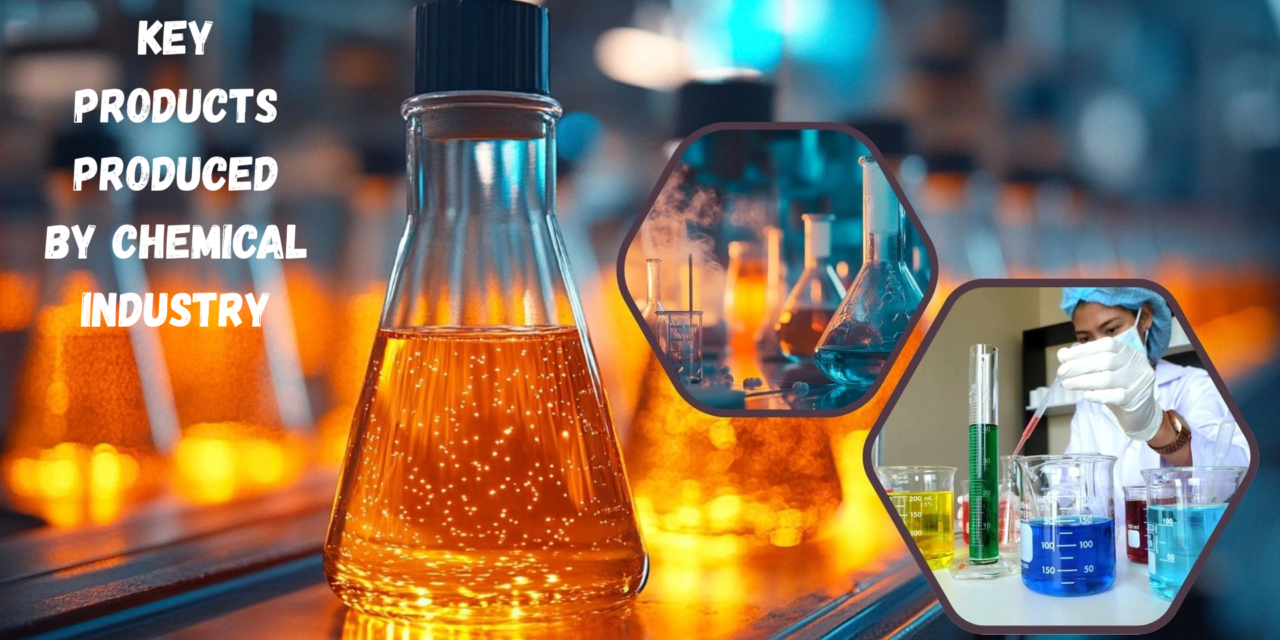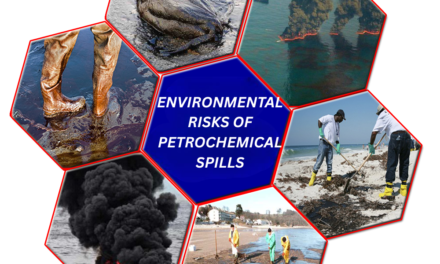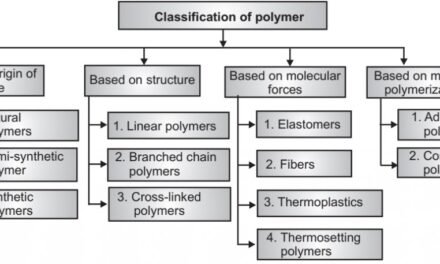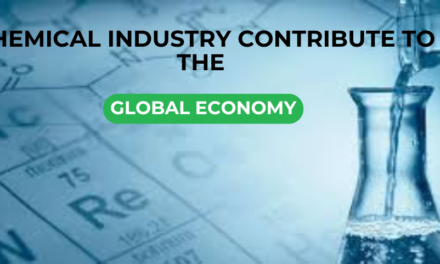The chemical industry produces a wide variety of products that are essential for numerous sectors, including manufacturing, agriculture, healthcare, and consumer goods. Here are the key products produced by the chemical industry, categorized by their use and type:
1. Basic Chemicals
- These are produced in large quantities and serve as raw materials for other chemicals and industries.
- Inorganic Chemicals:
- Sulfuric Acid – Used in fertilizers, petrochemical production, and metal processing.
- Hydrochloric Acid – Used in metal cleaning, food processing, and water treatment.
- Nitric Acid – Used in fertilizers, explosives, and industrial cleaning.
- Ammonia – Primarily used in fertilizers.
- Caustic Soda (Sodium Hydroxide) – Used in soap and detergent production, water treatment, and paper manufacturing.
- Organic Chemicals:
- Ethylene – A key building block for plastics (e.g., polyethylene), antifreeze, and solvents.
- Propylene – Used in the production of polypropylene, plasticizers, and solvents.
- Benzene – A starting material for chemicals like styrene, phenol, and nylon.
2. Specialty Chemicals
- These chemicals are typically produced in smaller volumes and are used for specific applications.
- Polymers (used in plastic production):
- Polyethylene – Used in packaging, containers, and household products.
- Polypropylene – Used in textiles, automotive parts, and packaging.
- Polyvinyl Chloride (PVC) – Used in construction (pipes, siding), medical products, and packaging.
- Surfactants – Used in detergents, cleaning products, emulsifiers, and personal care products.
- Adhesives and Sealants – Used in construction, automotive, and packaging.
- Coatings and Paints – Used in construction, automotive, and furniture.
- Dyes and Pigments – Used in textiles, plastics, and inks.
3. Agrochemicals
- These chemicals are essential in agriculture for improving crop yields and protecting plants.
- Fertilizers:
- Nitrogen Fertilizers (e.g., ammonium nitrate, urea)
- Phosphorus Fertilizers (e.g., superphosphate)
- Potassium Fertilizers (e.g., potassium chloride)
- Pesticides:
- Herbicides – Used to control weeds.
- Insecticides – Used to control insect pests.
- Fungicides – Used to control fungal diseases.
- Growth Regulators – Chemicals used to influence the growth of plants.
4. Pharmaceuticals and Biotechnology Products
- The chemical industry produces active pharmaceutical ingredients (APIs) and other chemicals for the healthcare sector.
- Medicines – Including antibiotics, painkillers, vaccines, and antivirals.
- Vaccines – Chemical compounds used in immunization.
- Biologics – Large, complex molecules like monoclonal antibodies used in medical treatments.
- Enzymes – Used in drug production, diagnostics, and various industrial applications.
5. Consumer Chemicals
- These are products used in everyday consumer goods.
- Soaps and Detergents – Used for cleaning, washing, and personal hygiene.
- Cosmetics and Personal Care Products – Including shampoos, lotions, makeup, and deodorants.
- Cleaning Products – Surface cleaners, disinfectants, and laundry detergents.
- Fragrances – Used in perfumes, household products, and personal care items.
6. Petrochemicals
- These are chemicals derived from petroleum and natural gas, and are used to make a variety of products.
- Plastics:
- Polyethylene – Used in packaging, plastic bags, and containers.
- Polypropylene – Used in automotive parts, textiles, and packaging.
- Polystyrene – Used in packaging materials, insulation, and consumer goods.
- Synthetic Rubber – Used in tires, footwear, and automotive parts.
- Fuels – Gasoline, diesel, and jet fuel.
- Synthetic Fibers – Such as nylon, polyester, and acrylic.
7. Fine Chemicals
- Fine chemicals are high-purity chemicals used in smaller quantities for specific applications.
- Active Pharmaceutical Ingredients (APIs) – Essential compounds in medicine.
- Food Additives – Such as preservatives, colorants, and flavor enhancers.
- Flavors and Fragrances – Used in food, beverages, perfumes, and cleaning products.
- Catalysts – Used in chemical reactions, including industrial processes like petroleum refining.
8. Industrial Gases
- Gases produced for industrial and medical use.
- Oxygen – Used in healthcare (e.g., for respiration) and in industrial processes (e.g., metal cutting and welding).
- Nitrogen – Used in food packaging, refrigeration, and as an inert gas in various chemical processes.
- Carbon Dioxide – Used in carbonation, refrigeration, and as a fire extinguisher.
- Hydrogen – Used in refining, ammonia production, and as a fuel.
9. Renewable Chemicals and Bio-based Products
- These are chemicals derived from renewable resources like plants and algae.
- Biofuels – Ethanol and biodiesel produced from crops like corn and soybeans.
- Bioplastics – Polylactic acid (PLA) and other plant-based plastics used in packaging and other products.
- Biochemicals – Enzymes, organic acids, and other chemicals produced from renewable sources.










